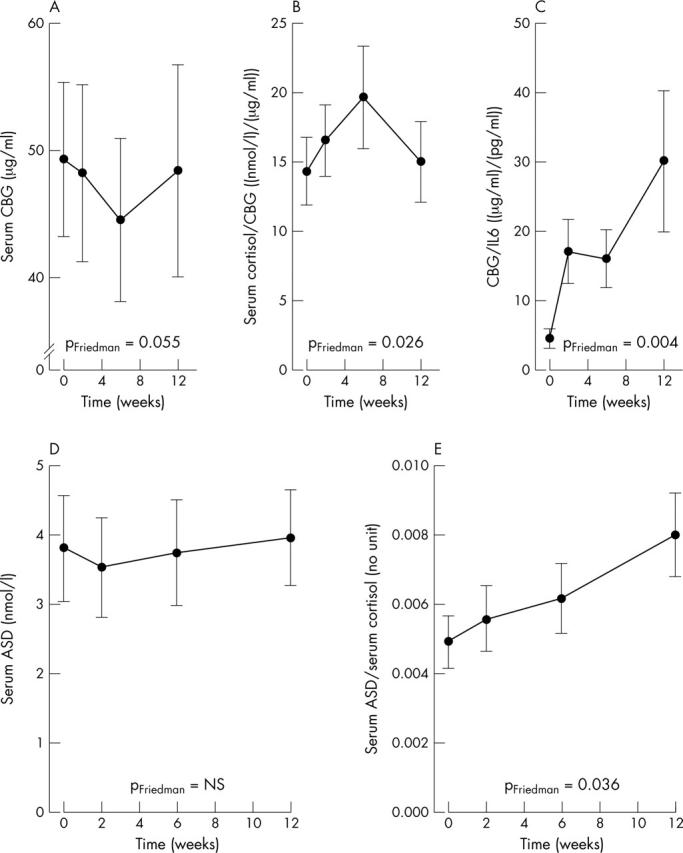Abstract
Objective: To investigate the course of CBG during anti-TNF treatment in RA.
Methods: 13 patients with longstanding RA, without prior prednisolone treatment, were included in this longitudinal study with subcutaneous adalimumab.
Results: Treatment with anti-TNF markedly decreased clinical markers of inflammation and serum IL6. Serum levels of cortisol, CBG, and the ratio of cortisol/CBG did not change markedly, whereas the ratio of serum CBG/IL6 increased (p = 0.004). In parallel, levels of adrenocorticotropic hormone decreased during the observation period. The ratio serum androstenedione/serum cortisol increased during the study (p = 0.036).
Conclusions: During anti-TNF treatment relatively normal levels of CBG and a normal ratio of CBG/cortisol are found. Changes of cortisol in relation to IL6 during anti-TNF treatment, seen previously, may not be related to changes of CBG.
Full Text
The Full Text of this article is available as a PDF (68.1 KB).
Figure 1.

Course of serum cortisol binding globulin (CBG) and androstenedione (ASD) in relation to cortisol during 12 weeks of anti-TNF antibody treatment in patients with RA. Baseline values are given as time point 0. The graph depicts serum CBG (A), the ratio serum cortisol/CBG (B), the ratio serum CBG/IL6 (C), serum ASD (D), and the ratio serum ASD/cortisol (E). The data are given as means (SEM). The p value according to Friedman's test is given.


